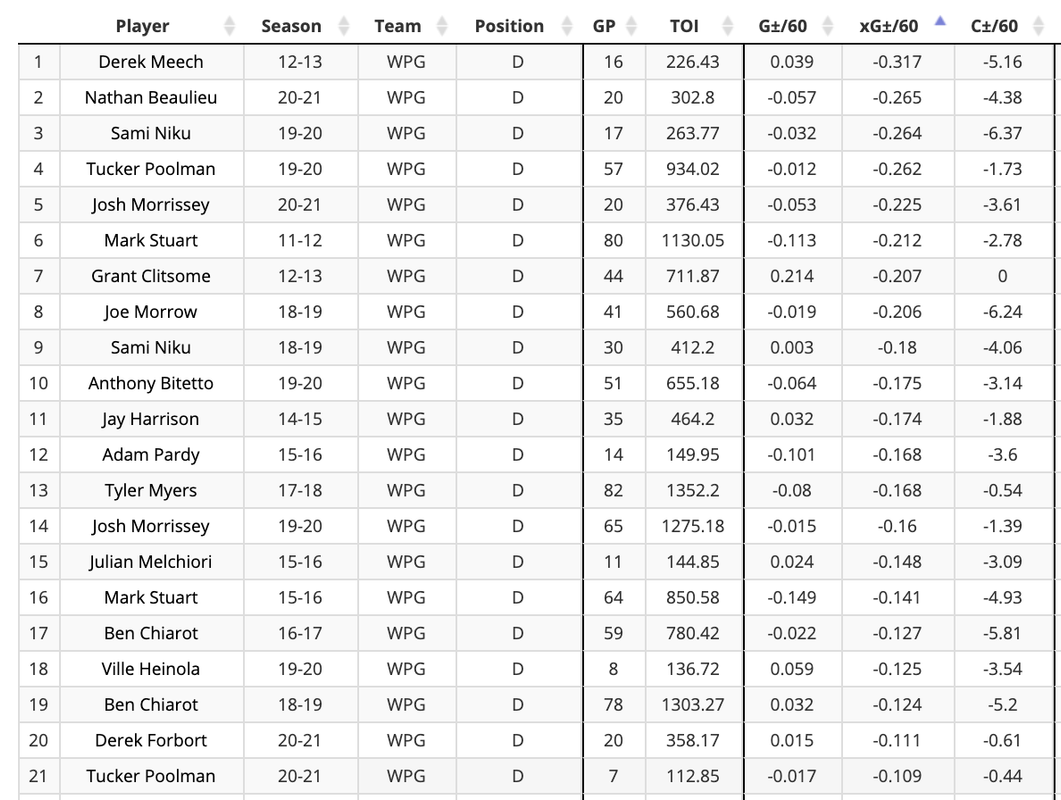I don't buy what you are selling sorry. It has value, but there is more to hockey than shots. Like how you prevent shots, how you create shots. It's such an incomplete picture that has become a mantra, but we went through 2 games in the past 3 where shots advantage were not the factor in the outcome. And that is quite often the case. You have no measure for passing off a scoring chance. No measure for missing one. No measure for turnovers, no measure for puck battles, which can create or negate shots. There's things that happen in real time that cumulative stats can not indicate. So I would argue we need a more complete picture of what is happening on the ice, and the science is still very much unproven.
First bit:
You don't buy what I'm selling...
You don't think getting more chances is good?
You don't think having those chances be the best chances is good?
You don't think capitalizing those chances is good?
If you're going to try and make those arguments there isn't many people that will take you seriously...
Second bit:
Have you forgotten about score effects? Teams change their decision making and systems when trailing vs leading, and that gets more extreme as you approach the end of a period. This is why we score adjust data.
Also, definitely wrong that they weren't a factor. Anyone watching those games knew that the game was tilted in a singular direction during those bluries of shots. That is a factor. Again, you won't find a coach or GM or player that says getting out shot is a good thing. Pionk even pointed out that it's not a sustainable way of winning.
You can argue it's not the ONLY factor, but then you are arguing against the sky since no one is making that argument.
Third bit:
How often is that the case? Did you know the Jets 2.0 win% is higher in games they won the shot battle than games they lost the shot battle?
Also this is a huge misunderstanding of hockey analytics and how they are used. Out shooting isn't what wins you games; it's outscoring. However, we know that out shooting is a byproduct of doing things the correct way over the long run.
This is why if you rank teams by Corsi, W/L, and goal differential at the 20ish game mark, the Corsi ranking of games 1-20 is the closest to the game 21-82 ranking of W/L or goal differential.
Fourth bit:
No measure for not taking a scoring chance? Not publically but privately.
That would essentially be the same as shots per possession. Which is intriguing in a disecting the game and coaching manner but not huge for overall evaluation of who is good vs bad. More for how someone *could* get better or worse.
Aside: Fun fact that possession is inferior to Corsi in that W/L or goal differential experiment I just mentioned (we've tested this at 3 different levels of hockey).
No measure for missing shots? Corsi is blocked shots, misssed shots, on net shots, and goals. Fenwick is same but removes blocked shots. Shots on net removes misses. You can see that missed shots are indeed tracked, even publically.
No measure for turnovers? Uh... I mean NHL.com turnover tracking is pretty weak but turnovers itself is weak and subjective. Those turnovers mostly just tell you who had the puck more to start with in the first place.
Possession changes are much more useful stat anyways. Not available publically and doesn't really help a lot in modeling how good/bad a player or team is but is helpful in finding *why* they are and coach them to improve.
But let's think about what you said critically:
No measure for turnovers, no measure for puck battles, which can create or negate shots.
You just almost had it there.
Turnovers. Puck battles. Face offs. Hits. Blah blah blah... all can help create or negate shots. That's exactly it.
The one and only reason those things matter is because they impact how often a team makes chances (Corsi), how good those chances are (xGoals), and somewhat impact finishing (Sh%/xSh%).
Those stats still tell you how good a player is. You lack the nuance from those things you mentioned on why they are as good or bad as they are, but you are not missing how good they are. Beaulieu doing the things he does, and making the decision he makes, the battles he wins and loses, etc. etc. is why his Corsi (and other stats) is what it is.
How good a player is exists solely in improving shot quantity, shot quality, and finishing/goaltending. That's it. That's all there is to the game.
Now, you *can* point out that public data is imperfect measure of shot quantity and quality. You can point out that public models is imperfect in isolating a player impact from enviroment. Those things are true (and some of the things you mentioned can improve that data or inference of said data). Those are things you can critique a model for but it's not going to flip the world upside down, just make different degrees of marginal improvements.






